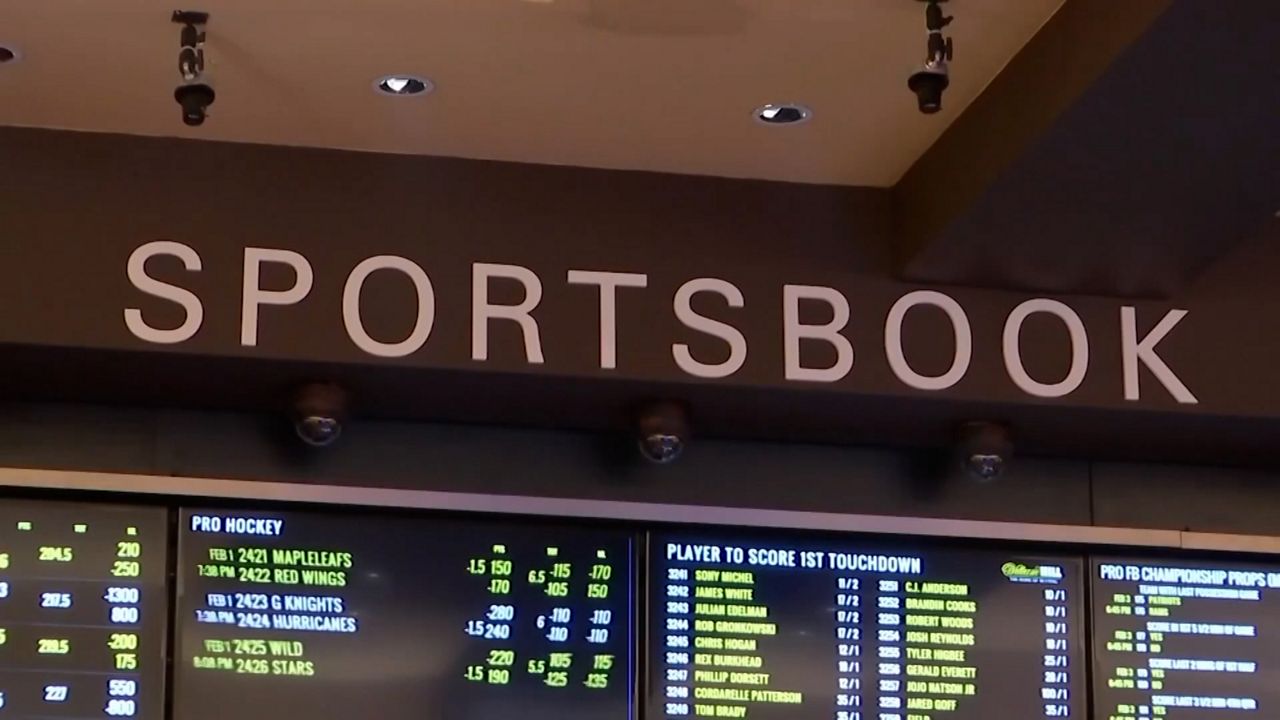RALEIGH, N.C. (AP) — Legislation authorizing sports gambling in North Carolina received final approval in the House on Wednesday and now heads to the Senate for consideration.
What You Need To Know
- The bill lays out how gambling operators would be licensed, wagers are made and revenue taxed
- A similar bill on sports gambling failed in the House last year
- People who are at least 21 would be allowed to bet on professional, college and Olympic-type athletics starting early next year
- The state would collect a 14% privilege tax on operators’ gross revenue, minus winnings and other expenses
The bill spells out how gambling operators would be licensed, wagers made and revenue taxed. The measure passed the day after it received tentative House approval following nearly two hours of impassioned debate. Wednesday's 64-45 vote also followed another hour of debate that included several additional amendments, all of which failed.
A similar initiative failed in the House last year, but pro-gambling forces redoubled their efforts, and nearly half the chamber signed on as sponsors for the latest measure.
Professional sports leagues and franchises in the ninth-largest state have pushed for the legislation, which would allow in-person gambling at or near arenas and stadiums in additional to online betting. Democratic Gov. Roy Cooper also supports the idea.
Prospects are strong for passage in the Senate, which approved a bill in 2021.
In both chambers, differences over the measure do not run along party lines, with opponents largely a collection of social conservatives and some Democrats warning about the dangers of compulsive gambling.
Proponents say sports wagering is already happening through local or offshore bookies and it's better for the activity to be brought into the open and regulated by the state.
Under the measure, the North Carolina Lottery Commission would be directed to issue between 10 and 12 interactive sports wagering licenses.
People who are at least 21 would be allowed to bet on professional, college and Olympic-type athletics starting early next year.
And the state would collect a 14% privilege tax on operators’ gross revenue, minus winnings and other expenses.
Neighboring Tennessee and Virginia are among 24 states that already allow mobile or online sports betting, according to the American Gaming Association.
Sports betting is already going on at two casinos in the North Carolina mountains run by the Eastern Band of Cherokee Indians and a third west of Charlotte run by the Catawba Indian Nation.



